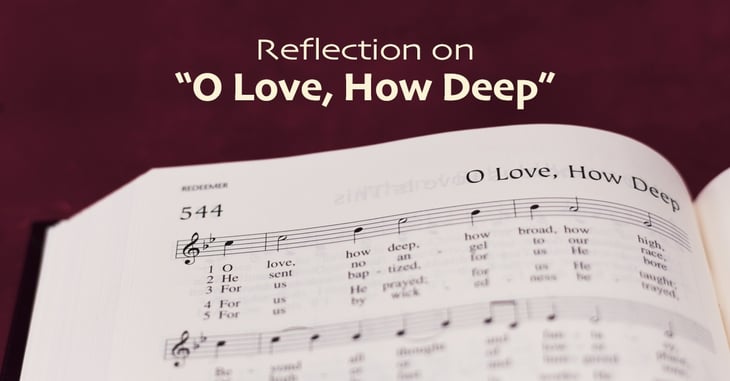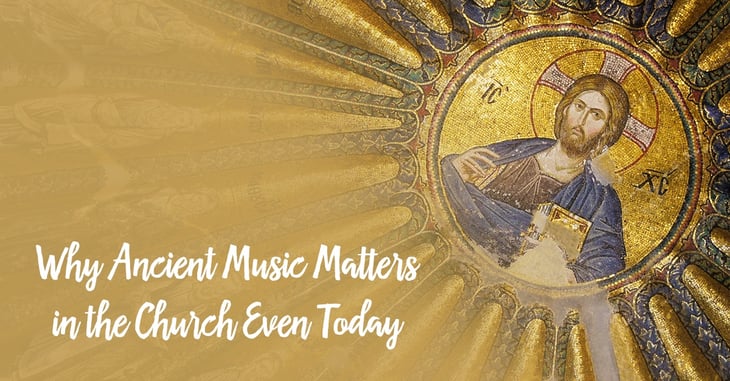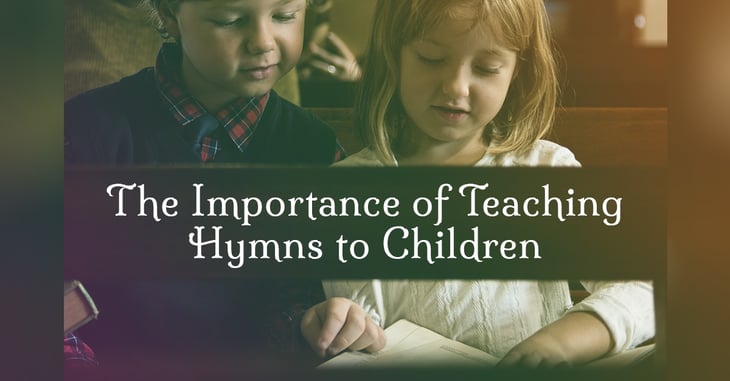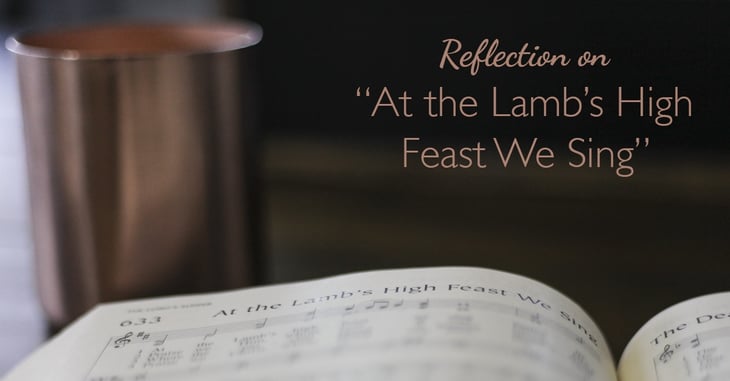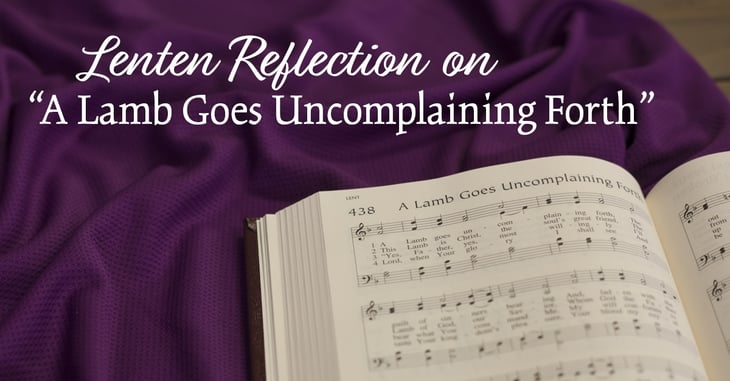Recent Posts by Marie Greenway
Prayer Hymns: One Immense Voice Raising Supplication to God
Have you ever attempted an extempore prayer? I know I have been in many situations in which someone calls upon me to offer a prayer, and I confess I don’t have many memorized beyond the basics (the Lord’s Prayer, Luther’s Morning and Evening Prayers, etc.). The ability to compose a prayer on the spot is important to learn, but oftentimes, previously composed prayers are more thorough and eloquent.
Reflection on “O Love, How Deep”
The Christian faith presents certain truths about Jesus Christ—His birth, death, and resurrection, to name a few—and teaches that these events were real. Many people consider our faith as simply believing in Jesus; however, Scripture tells us that even the demons believe in Jesus (James 2:19). Our faith rests on something deeper: Jesus became man, died, and rose for us. Perhaps no hymn speaks to this simple yet glorious truth better than “O Love, How Deep.”
Why Ancient Music Matters in the Church Even Today
A music history professor once painted this picture for me: “Imagine you are a commoner in the Middle Ages, slaving away in the fields every day. Now imagine you walk into church. When it is cold outside, the church is warm. When it is hot outside, the church is cool. Now imagine you come into church and hear this.” And she played for us a Gregorian chant.
Does the Memorization of Hymns Matter?
We often use music as a tool to memorize things, whether they’re presidents, books of the Bible, states, parts of grammar, the Small Catechism, or any number of other items. The rhythm of songs and the catchiness of melodies make music a convenient vehicle to relay and hold onto facts, stories, lists, and so on. Music in this way serves a great purpose.
But have you ever stopped to wonder why we memorize things? Sure, instantly recalling a fact or name is good and useful and usually speeds up the work that needs to be done. But is there a greater purpose to memorization? Does music’s ability to make memorization quick and easy contain a higher good than simply recollection of fact?
The Importance of Teaching Hymns to Children
Christianity is not a simple thing. As church musicians, we understand this and strive to use our music to help teach doctrine in all of its complexities and subtleties to congregants both young and old. In fact, what better way to prepare and teach our young people than by teaching them robust, doctrine-filled hymns?
Reflection on “At the Lamb’s High Feast We Sing”
As I reflect on the glorious triumph of the Easter season, I remember the final hymn my congregation sang on Easter Sunday: “At the Lamb’s High Feast We Sing” (LSB 633). One of my all-time favorite hymns, it has a text that rightly captures both the joy of the day and the ultimate joy of the glorious Easter feast of heaven.
Easter is a time of rejoicing, and one of the best ways to rejoice is to throw a feast. In fact, for the past several Easter Sundays, I have had the opportunity to celebrate with food and fellowship. This feasting is a continuation of the joy of the Sunday-morning proclamation that “Christ is risen! He is risen indeed! Alleluia!” It is also a foretaste of the celebration of heaven, that great feast of victory.
How Church Musicians Can Find Rest during Holy Week
One church musician cancels her piano lessons during Holy Week. Another decides not to travel to visit family during spring break because Holy Week is coming up too soon. The looks and brief conversations between church musicians during this time admit an exhaustion that accompanies this premier week of the Church Year.
Training Kids to Be Church Musicians
As church musicians, we understand the necessity of training young people not only in music generally but in church music specifically. With all the talk of a lack of young church musicians, how do we begin to recruit the children in our own churches?
Reflection on “A Lamb Goes Uncomplaining Forth”
As the recently arrived Lent spurs Christians to reflect on their mortality and sinfulness, to give up vices, and to contemplate the suffering of Christ, we begin looking forward with great eagerness to Easter. While Lent may be a beautiful and necessary part of the Church Year, the solemnity of this time can sometimes turn discouraging. This year, I have turned to Paul Gerhardt’s text of “A Lamb Goes Uncomplaining Forth” (LSB 438) to seek comfort, assurance, and confidence in the hope of the resurrection.
Reflection on “Alleluia, Song of Gladness”
As I reflect on the end of the Epiphany season and the beginning of Lent, I like to turn to the hymn that transitions us from one to the other on Transfiguration Sunday: “Alleluia, Song of Gladness” (LSB 417). The early Latin text adequately conveys tension between life here on earth and the eternal joy we look forward to in heaven.



